
Snowflake Gives Restrained Outlook on Slower Software Demand
Snowflake Inc. gave a sales outlook for the current quarter in line with expectations, suggesting that companies are
2023-08-24 05:47

EU's Breton urges Big Tech to use new online content rules to restore trust
By Foo Yun Chee BRUSSELS Alphabet's Google, Meta Platforms, Microsoft, Twitter, TikTok and other tech giants should use
2023-08-24 04:59

Nvidia's quarterly sales double on the back of AI boom
The artificial intelligence boom continues to fuel a blockbuster year for chipmaker Nvidia.
2023-08-24 04:58

Nvidia forecasts third-quarter revenue above Wall Street expectations
(Reuters) -Chip designer Nvidia forecast third-quarter revenue above Wall Street targets on Wednesday, boosted by soaring demand for its chips
2023-08-24 04:22

SpaceX working with Cloudflare to speed up Starlink service- The Information
(Reuters) -Elon Musk-owned SpaceX is working with Cloudflare to boost the performance of its satellite internet service Starlink, the Information
2023-08-24 03:55

Kenyan court orders mediation in Meta labour dispute
NAIROBI (Reuters) -A Kenyan court has given Facebook's parent company Meta and content moderators suing it for unfair dismissal 21
2023-08-24 01:26
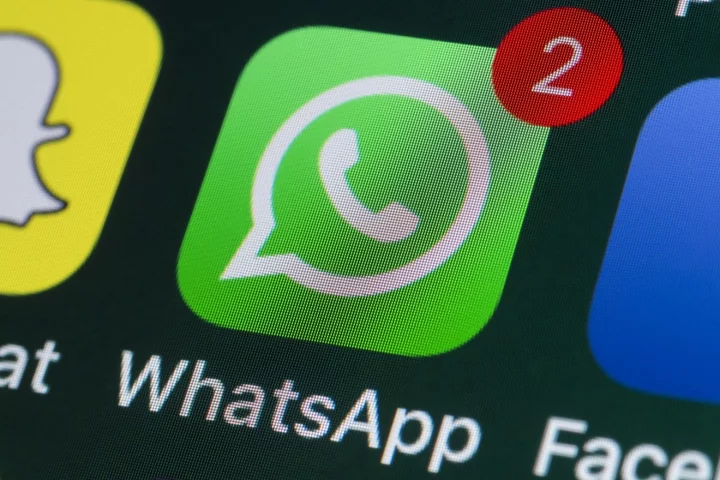
WhatsApp update stops people having to come up with good names for groups
WhatsApp will finally let people create group chats without having to come up with a clever name for them – or any name at all. Users will instead be able to just make a group and then have that group name itself after the people inside of it. WhatsApp suggested that the tool will be useful when “you need to create a group in a hurry, or you don’t have a group topic in mind”. It will be available for group chats with up to six people in them. The group names will be changed dynamically, depending on who is in the group. The group name will display differently for each user in it, depending on how they have people saved in their phone. If someone is added to a group with people who don’t have that person saved, then their phone number will show instead. Mark Zuckerberg announced the feature on Facebook. “Making it simpler to start WhatsApp groups by naming them based on who’s in the chat when you don’t feel like coming up with another name,” he wrote, sharing a picture of how the new groups will look. The feature is rolling out “globally over the next few days”, Meta said. It is one of a number of small tweaks that have been added to WhatsApp in recent weeks. Most recently, it fixed a major frustration that meant that pictures would be shrunk when they were sent within a group. The company is also quietly working on other features, including the addition of generative AI to create new stickers just by describing them. Read More WhatsApp update finally stops it ruining your photos WhatsApp rolls out AI tool for creating custom art Jury finds teenager responsible for computer hacking spree
2023-08-23 22:26
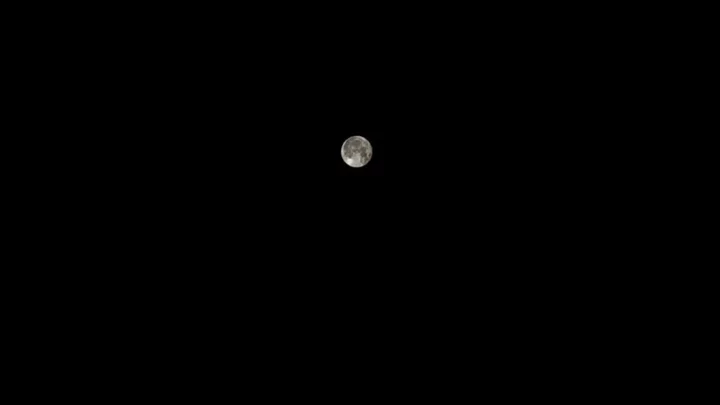
'Hidden structures' discovered deep beneath the dark side of the moon
Scientists have just uncovered billions of years’ worth of secrets buried beneath the surface of the moon. Our celestial companion has been a source of awe and mystery since time immemorial, but now, thanks to China’s space programme, we’re starting to piece together its past. In 2018, the Chang’e-4 lander, of the Chinese National Space Administration (CNSA), became the first spacecraft ever to land on the far side (or the dark side, if you'd prefer) of the moon. Since then, it has been capturing incredible images of impact craters and extracting mineral samples, offering a long-sought insight into the structures that make up the top 1,000 feet of the moon’s surface. Earlier this month, the Chang’e-4’s findings were finally published, and the world was invited to delve deep into the history of our cherished natural satellite. The results, published in the Journal of Geophysical Research: Planets, reveal that the top 130 feet (40m) of the lunar surface are made up of multiple layers of dust, soil, and broken rocks. Hidden within these layers is a crater, which formed when a large object slammed into the moon, according to Jianqing Feng, an astrogeological researcher at the Planetary Science Institute in Tucson, Arizona, who co-led the pioneering analysis. Beneath this, Feng and his colleagues discovered five distinct layers of lunar lava that spread across the landscape billions of years ago. Experts believe that our moon formed 4.51 billion years ago, when a Mars-size object crashed into Earth and broke off a chunk of our planet, as Live Science notes. Over the following 200 million years or so, the moon continued to be pummelled by space debris, with numerous impacts leaving cracks in its surface. Just like on Earth, the moon’s mantle contained pockets of molten magma, which infiltrated the newly formed cracks thanks to a series of volcanic eruptions, Feng explained. However, the new data provided by Chang’e-4 showed that the closer the volcanic rock was to the moon’s surface, the thinner it got. "[The moon] was slowly cooling down and running out of steam in its later volcanic stage," Feng said. "Its energy became weak over time." It is understood that volcanic activity on the moon died out between a billion and 100 million years ago, which means it is largely considered “geologically dead”. However, Feng and his co-authors have suggested there could still be magma buried deep beneath the lunar surface. Chang’e-4 still has much work to do, and Feng and his team hope this is just the beginning of their literally ground-breaking mapping of the moon. Sign up for our free Indy100 weekly newsletter Have your say in our news democracy. Click the upvote icon at the top of the page to help raise this article through the indy100 rankings.
2023-08-23 22:25
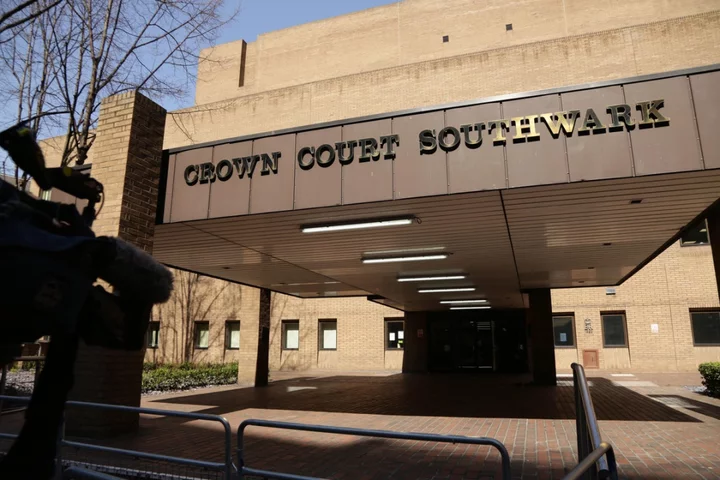
Jury finds teenager responsible for computer hacking spree
A teenager has been found responsible for a hacking spree in which victims’ savings were stolen and major companies, including the maker of the best-selling Grand Theft Auto video games, were blackmailed. Arion Kurtaj, 18, and a 17-year-old who cannot be named for legal reasons, were described by the prosecution as the “key players” in the LapsusS hacking group. Psychiatrists had assessed Kurtaj as unfit to stand trial so the role of the jury in his case was to decide whether he had committed the acts alleged against him. On Wednesday, following a two-month trial at London’s Southwark Crown Court plus nine hours and 19 minutes of deliberations, a jury unanimously found Kurtaj had carried out 12 offences in his spree of innovative hacks. These offences included six counts of carrying out an unauthorised act to impair the operation of a computer, three counts of blackmail, two fraud offences, and of failing to comply with a section 49 notice to disclose a key when he did not give up the password to his mobile phone when asked to by police. He tried to blackmail Rockstar Games by threatening to “leak the stolen source code for the Grand Theft Auto sequel onto internet forums”, the indictment stated. Kurtaj and the youth were also accused of hacking software company Nvidia in February 2022 before threatening to “release Nvidia Corporation’s intellectual property on to the web” if it did not pay them. The 17 year-old showed no emotion as he was found guilty of one count of fraud, a charge of blackmail and also of having carried out an unauthorised act to impair the operation of a computer. His mother wept uncontrollably after the verdicts were read out. Keep in mind Arion Kurtaj's psychological make-up, and in particular his psychological condition, his education or lack thereof - could he be the highly intelligent, competent genius that the prosecution set out at the beginning? Arion Kurtaj's defence counsel David Miller Prosecutors alleged Kurtaj and the 17-year-old, aided by unknown associates, hacked the servers and data files of broadband provider BT and mobile operator EE before demanding a four million US dollar ransom on August 1 2021. But the 17-year-old was found not guilty of a charge of have carried out an unauthorised act to impair the operation of a computer and a further charge of blackmail in relation to BT. He previously pleaded guilty to one offence under the Computer Misuse Act and one count of fraud. Neither defendant gave evidence during the jury trial. Sentencing dates at the same court have yet to be fixed for either defendant. This has been a complex and sensitive investigation involving a multi-agency response and there have been a number of challenges throughout the police investigation and judicial process Detective Superintendent Richard Waight A case management hearing has been set for Kurtaj on September 21, while it is hoped that a sentencing date may be fixed for the 17 year-old on November 9. During the trial, the court was told that Kurtaj had been living in care since the age of 14 and had been housed for a period in a Travelodge “for his own protection”. Kurtaj’s defence counsel David Miller described the youngster as “the most vulnerable of adolescents” who was now pitted against huge companies and corporations worth billions, who had unlimited funds and unlimited resources including the FBI, National Crime Agency, Interpol and City of London Police. During closing speeches, he told the jury: “Keep in mind Arion Kurtaj’s psychological make-up, and in particular his psychological condition, his education or lack thereof – could he be the highly intelligent, competent genius that the prosecution set out at the beginning?” After the verdicts, Detective Superintendent Richard Waight, of the City of London Police, said: “This has been a complex and sensitive investigation involving a multi-agency response and there have been a number of challenges throughout the police investigation and judicial process. “We thank the judge and jury for being patient throughout the trial, during deliberations and for the subsequent verdicts.” Read More Charity boss speaks out over ‘traumatic’ encounter with royal aide Ukraine war’s heaviest fight rages in east - follow live Social media firms should reimburse online purchase scam victims – Barclays Hozier would consider striking over AI threat to music industry Snapchat experiences ‘temporary outage’ as My AI chatbot posts own Story
2023-08-23 22:24
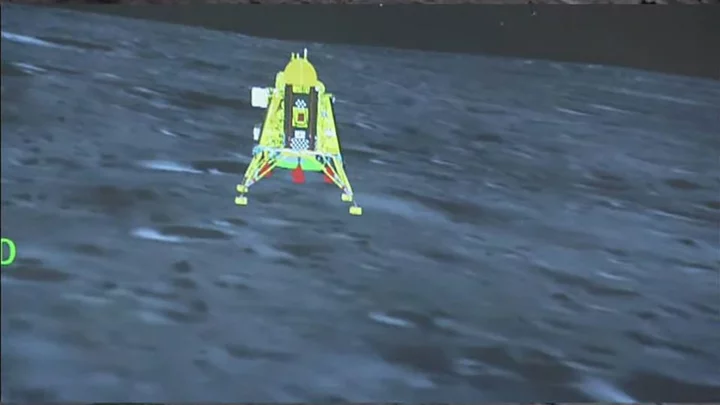
India landed on the Moon for less than it cost to make Interstellar
India has successfully landed on the Moon – for less than the cost of the film Interstellar. The Indian space agency announced on Wednesday that it had completed a “soft landing” on the lunar surface, near its southern pole. It becomes the first ever to land there, and just the fourth country to successfully send a mission to the Moon at all. And it did so on a very restrictive budget. The Chandrayaan-3 cost was sent to the Moon at a cost of about 6.15 billion rupees, or $75 million, according to Reuters. That is less than the cost of most blockbuster space films. Gravity cost $100 million, The Martian cost $108 million – and it was less than half the cost of Interstellar, which was filmed on a budget of $165 million. It even costs less than some houses. The UK’s most expensive house, for instance, went on sale at £200 million, or nearly three-and-a-half missions to the Moon. The budget is even less than India allocated to Chandrayaan-2, the previous attempt to land on the Moon in 2019, which ended in failure when the lander crashed. That cost around 8 billion rupees, or about 30 per cent more than the latest successful mission, though engineers have made clear that many of the learnings from that earlier launch had been integrated into the latest one. India has looked to build a reputation for cost-effective but still successful missions to space. It comes as the country encourages investment in the private space industry and businesses focused on satellites. The price of the whole Indian mission is similar to that charged by SpaceX for one Falcon 9 launch. That is charged at $67 million, according to its website. Read More AI can detect Parkinson’s up to seven years before symptoms appear, study finds Justin Trudeau slams Facebook for blocking news stories about wildfires
2023-08-23 22:17
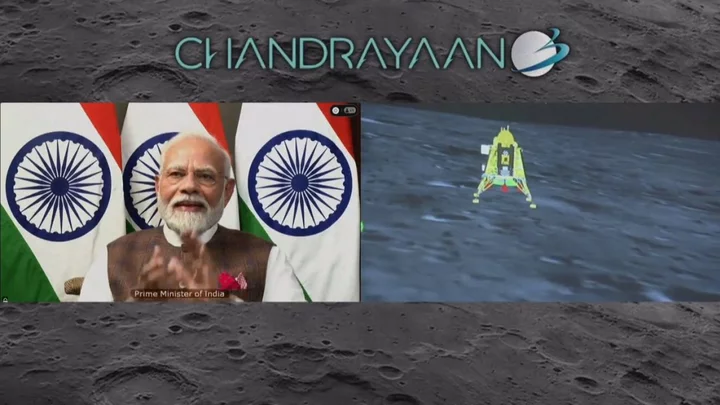
Watch: India becomes first country to make historic moon landing on planet's south pole
This is the moment India made its historic first landing on the moon's south pole, just days after Russia's attempt ended in a crash. India's attempt to land its Chandrayaan-2 mission near the south pole in 2019 was unsuccessful, but the Chandrayaan-3 mission went off without a hitch. The lander, known as Vikram, touched down at 13:34 BST. It's thought no attempts have been successful so far because of its rocky landscape, making it difficult to find somewhere to land safely. Sign up to our new free Indy100 weekly newsletter
2023-08-23 20:47

Scientists discover that plants make sounds when hurt that you can hear
Plants make sounds when they’re distressed and humans are only hearing them now for the first time, scientists have found. New research has discovered that sounds are used by plants to communicate with their ecosystems – and they could be studied and used to improve growing conditions for plants in the future. Itzhak Khait of Tel Aviv University led the research, which involved studying tobacco and tomato plants. As the findings showed, the plants made high-frequency noise which could be detected five metres away. The study was published in the journal Cell, and the results “can alter the way we think about the plant kingdom, which has been considered to be almost silent until now”. Not only that, but by studying the sounds emitted by the plants experts could tell whether they were in need of water or suffering from cuts. Lilach Hadany, an evolutionary biologist at Tel Aviv University, told Vice: “We started this project from the evolutionary question: why are plants mute? It appears that plants could have a lot to benefit from acoustic communication.” “We were particularly happy that the sounds turned out to be informative – containing information on the type of the plant and the type of the stress.” The findings could change the way plants are grown and communicate with their environments in future, given that we now know information can be conveyed via the sounds. Hadany went on to say: “What we do know is that there are sounds in the air, and they contain information. “Thus, natural selection may be acting on other organisms (animals and plants) to whom the sounds are relevant, to be able to hear the sounds and interpret them. That includes animals that can hear the sounds and can use the information to choose a food source or a laying site, or potentially plants that can prepare for the stress.” The team said in the study: “Plant sound emissions could offer a way for monitoring crops water and possibly disease states—questions of crucial importance in agriculture. “In times when more and more areas are exposed to drought due to climate change, efficient water use becomes even more critical, for both food security and ecology.” Sign up for our free Indy100 weekly newsletter Have your say in our news democracy. Click the upvote icon at the top of the page to help raise this article through the indy100 rankings.
2023-08-23 19:27
